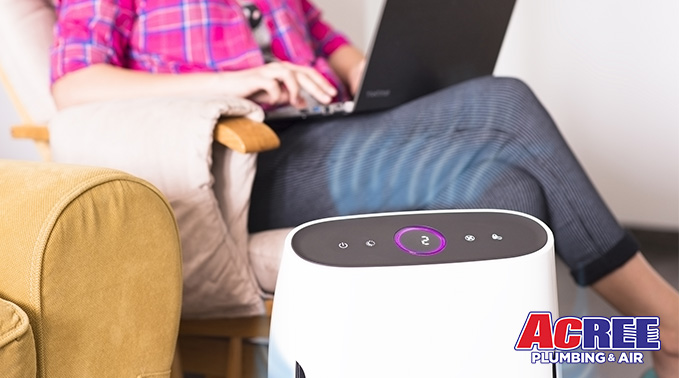SCHEDULE SERVICES
X
UV Air Cleaner: Everything You Need to Know
SCHEDULE SERVICE
UV Air Cleaner: Everything You Need to Know
August 14, 2020

Healthy indoor air quality can help prevent allergies and asthma symptoms from acting up and other reactions to pollutants and toxins. Therefore, many homeowners opt for air purifiers or air cleaners—these appliances can lessen exposure to indoor allergens. There are various types of air cleaners, one of them being the UV Air Cleaner or ultraviolet air cleaner. These purifiers are a little controversial because of the risks that come with exposure to UV light. However, it’s been proven that UV light can kill bacteria and germs and is often used in hospitals do so. If you’re on the hunt for a new air cleaner and the UV type has caught your eye, here is a helpful guide on everything you need to know about a UV air cleaner—this way, you can make an informed decision.
How Does UV Air Cleaning Work?
UV Air Cleaners essentially inactivate airborne germs, bacteria and mold spores. They are sold as separate devices themselves or they come pre-installed in heating and cooling systems. Air is forced through the air cleaner under the light emitted from the UV lamp—any microorganisms in the indoor air have their DNA altered, which inactivates or destroys the microorganism.
Is UV Air Cleaning Safe?
It is reasonable to worry about the safety of ultraviolet air cleaners. The thing about UV air cleaners is that they can produce ozone—while Ozone can react with pollutants and break them down, it is also harmful and high exposure to ozone can lead to major health issues. To ensure you don’t have high ozone levels in your home, make sure you get a UV air cleaner with a good UV filter. In addition, make sure the UV light is emitted at a safe wavelength—for ozone to be produced, the UV light wavelength would have to be in the 160-240nm range.
Is UV Air Cleaning Effective?
There are uncertainties surrounding the technology behind UV air cleaners and how effective they are. The main issue with UV technology is the emission of ozone and the fact that works best with other filtration technology. A lot of these air cleaners are paired with HEPA or carbon filters, because simply UV technology is often not enough.
However, UV air cleaners are quiet and those brands that have been proven to work can be effective. Whatever air cleaner you purchase, make sure it is of higher quality and make sure you look at multiple sources before making a decision.
Have any more questions about UV Air Cleaners? Get in touch with the professionals at Acree! Our team of experts would be more than happy to answer your questions and address your concerns. Whether you need your indoor air quality improved, your ducts cleaned, your plumbing fixtures serviced, or your HVAC unit repaired, Acree will be here to help! Call us today at 800-937-6736 or schedule a service with us on our website!
SCHEDULE SERVICE
Please fill out the form below so that we can better assist you.









